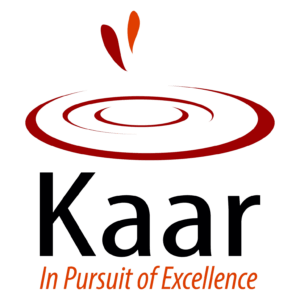Professional Services industries are driving profitable growth while being responsive to customer and employee needs, owing to the rapid evolution of technologies such as robotic process automation, machine learning, artificial intelligence and predictive analytics. These businesses are focused on the strategic priorities outlined below in order to achieve their goals.
This blog discusses industry-specific features for the Professional Services Industry offered by RISE with SAP’s Business Transformation Service. Let us begin by defining strategic priorities and their benefits for the Professional Services Industry!
Strategic Priorities for Professional Service Industries
These industries have set the following strategic priorities to transform their businesses into intelligent enterprise and helps them to prepare in meeting the expectations of tomorrow’s consumers. Now let’s have a look at those strategic priorities.
- Outcome-Based Engagements
- Talent Networks
- Knowledge as a Service
Intelligent technologies embedded with the RISE with SAP framework plays a critical role in enabling professional services industries to become a digitally transformed enterprise. Adapting to this enables your organization to redesign entire business models, processes, and products by driving enterprise digitalization through product development.
RISE with SAP for Professional Services Industry: Outcome-Based Engagements
Outcome-based models are replacing the simple “time and materials” business model that was once highly profitable for professional services organisations. Clients are increasingly concerned with the business outcome of an engagement rather than the amount of effort required and they are negotiating prices as well as relationships accordingly. The key item for most firms is to implement a superior bidding process that results in accurate proposals, ensuring predictability and repeatability of outcomes which in turns minimise delivery risks.
To better understand this, let’s consider there are two businesses namely:
- Company A uses a non-SAP ERP system
- Company B uses an SAP-ERP system
As Company A’s entire business structure is governed by a non-ERP system, these were the pain points faced by them:
- The RFx process is frequently manual and relationship-based, which requires extensive input.
- A bottom-up effort is required to research other projects and develop a bid.
- Through multiple rounds of checking, multiple bid versions were developed, reviewed and tweaked.
- The creation of final proposals required weeks of work from a large number of contributors and reviewers.
- “Time to engagement” was pushed back due to a time-consuming commercial agreement.
- Potential for customer annoyance and missed opportunities (opportunity cost).
- Missed opportunities and customer frustration were common as a result of work completion delays.
As a result, insufficient integration of their traditional system resulted in a high involvement of manual processes.
Whereas Company B uses an SAP-ERP system, which enables them:
- The entire system was relationship-based, and it was performing well with multiple channels of digital engagement.
- Using existing intelligence and experience to accelerate and standardise delivery throughout the bid development process as possible. These predictive analytics provided insights to meet their expected success.
- Controlled visibility and fine-tuning of the bid and commercials to produce the final proposal worked out effectively.
- The “time-to-engage” with the customers and beginning of delivery has been drastically reduced.
Overall, Company B’s Intelligent ERP [RISE with SAP Package] system provides a comprehensive next-generation project workspace with real-time postings of revenue, project margin and engagement progress with a single and consolidated view of project-related information. This analysis of previous bids such as comparing bids, budgeted amounts, actual budgets and flexible reuse of previous bids and projects as a foundation for making reliable bids is helpful to them.
Top Value Drivers
The major value drivers in the professional services industry post successful deployment of SAP S/4HANA are:
- A 10% increase in the success rate of sales pursuits
- Increased customer satisfaction as a result of responsiveness
- 1% increase in resource utilisation, with a significant impact on overall firm profitability
(Note: Data was taken from SAP’s statistics)
Now you may be asking, “How can RISE with SAP helps us?”. Here are the primary business capabilities they offer to assist you in reaching your objectives:
- The transition from time and materials-based engagements to outcome or performance-based billing.
- Use intelligent bid management to ensure predictability and repeatability of outcomes, thereby reducing delivery risks.
Conclusion
To summarise, SAP S/4HANA is one such solution that provides an intelligent and industry-specific benefits to the Professional Services industries via a digital core ERP system. It can help you gain competitive insights into your operations, increasing efficiency and agility while simplifying operations from procurement to manufacturing, order administration, distribution and transportation.
Own your tomorrow with a guided journey and outcome-driven practices of RISE with SAP. To know more about the industry-specific solution, do get in touch with us!
